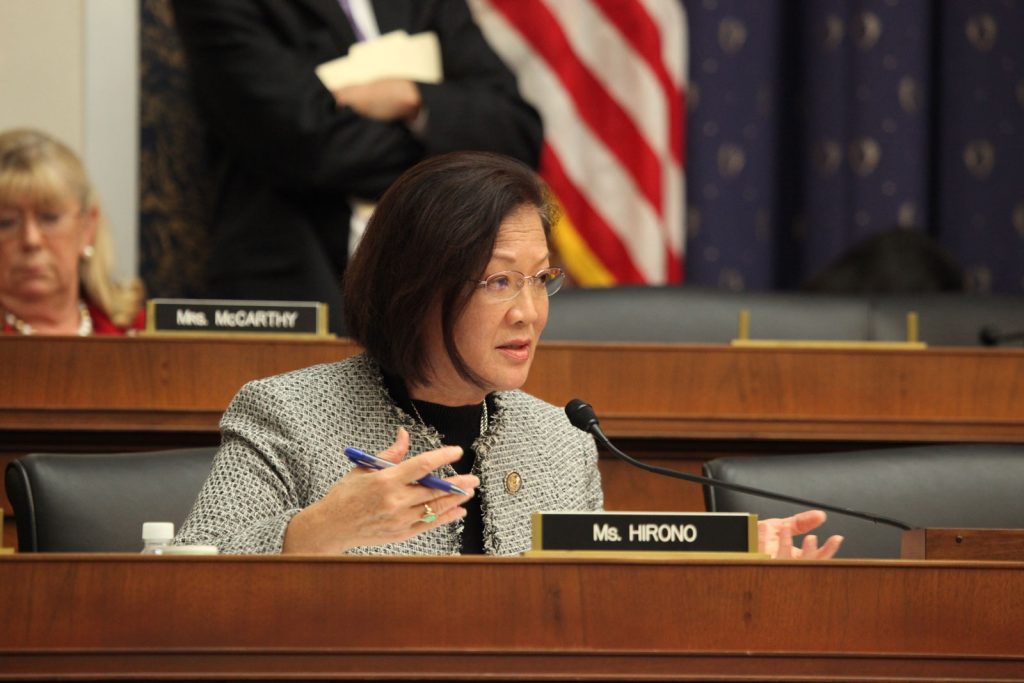Nothing is permanent, so everything is precious. Here’s a selection of some happenings—fleeting or otherwise—in the Buddhist world this week.
Buddhists React to Brett Kavanaugh Hearing
Almost everyone in America has been following the confirmation process this week of Supreme Court nominee Brett Kavanaugh, who has been accused of attempting to rape Christine Blasey Ford at party when they were in high school. While Kavanaugh’s supporters are outraged at what they characterize as a smear campaign, Ford and Kavanaugh’s testimony has opened old wounds for many survivors of abuse and brought renewed urgency to the #MeToo movement. This national event has reverberated in Buddhist communities. Sen. Mazie Hirono (D-Hawaii), one of the the few Buddhist members of Congress, sits on the Judiciary Committee tasked with deciding if Kavanaugh’s nomination moves to a floor vote and has been an outspoken critic of Republican efforts to speed up the process. On Friday, Hirono was one of four senators who walked out of the hearing, calling it “ridiculous” and a “railroad job,” repeating her calls for an FBI investigation.
Meanwhile, Tibetan Buddhist nun and teacher Thubten Chodron spoke at Sravasti Abbey in an effort to make sense of the hearing. Chodron said, “What saddens me the most is how political this has become,” adding that she saw a lot of “bias and the inability to open up and feel compassion for different viewpoints.” But she said Ford was an exception. “Dr. Blasey [Ford] had a motivation to benefit the country,” Chodron said. “She’s not getting anything positive out of this. The whole thing is horrific for her.” She went on to discuss issues of privilege, entitlement, and double standards between men and women before concluding, “We can’t control the world . . . but it starts here, with our mind seeking to benefit people, and not having hatred and vengeance, but to speak the truth.”
Buddhist Project Sunshine Moves On
The abuse-survivor advocacy group Buddhist Project Sunshine (BPS), which has produced three reports containing allegations of sexual abuse at Shambhala International, has concluded its investigation into the community led by Sakyong Mipham Rinpoche, according to a statement by BPS founder Andrea Winn. The group will now be “shifting the focus of our work away from Shambhala and into a greater space of promoting integrity of Buddhist practice in the West,” the statement said, adding that BPS can no longer continue to function as a “watchdog” for Shambhala. BPS will continue to hold online discussion groups and is encouraging others to keep an eye on Shambhala. Winn explained that she is proud that their work shed light on a hidden problem but said that while Shambhala has made changes, they have “declined to engage with BPS.” “I accept this and have released my hopes of working together,” she added. In the future, BPS will work on “addressing past harm and proactively preventing future harm” by creating support programs for survivors and working to create guidelines for ethical governance in Buddhist communities, the statement said.
The BPS reports led to the resignation of Shambhala’s governing Kalapa Council and caused Sakyong Mipham Rinpoche to step aside after allegations emerged that he abused multiple women. A third-party investigation by the law firm Wickwire Holm is ongoing.
House Bill Pushes China to Open Tibet Borders
The House of Representatives this week passed a bill to fight back against Chinese travel restrictions in Tibet, Radio Free Asia reports. Under the Reciprocal Access to Tibet Act, Chinese officials who deny American citizens access to the Tibet Autonomous Region will not be allowed to enter the United States. The act aims to pressure China into opening up Tibet’s borders to journalists, aid workers, and US diplomats. The bill, which was introduced by Rep. Jim McGovern (D-Mass.), will move on to the Senate, where it has bipartisan support. “Today is a great day for human rights,” said McGovern. “If China wants its citizens and officials to continue to travel freely in the US, then Americans—including Tibetan Americans—must be able to travel freely in China.”
Virginia Museum Restores 14th-century Japanese Painting
The Virginia Museum of Fine Art (VMFA) in Richmond has restored a gold-painted Japanese hanging scroll from the Nanbokucho period (1336–1392), the museum said in a press release. The Descent of the Amitabha Trinity (Amida Triad) depicts an important story in Pure Land Buddhism, in which the Amitabha Buddha [the buddha of pure light] comes down from heaven to greet his followers. The painting, which was made using the cut gold [kirikane] technique, “not only visually illustrates the Pure Land teaching, but also reflects its strong impact on people’s spiritual lives in 14th-century Japan,” said Li Jian, VMFA’s E. Rhodes and Leona B. Carpenter curator of East Asian art. When the museum acquired the painting in 1964, it was too frail to be displayed. Over the past year, the VMFA restored and remounted it on a silk brocade with the help of a $20,930 grant from The Sumitomo Foundation of Tokyo. The scroll will now be able to join the Japanese art exhibit in early 2019.
Thank you for subscribing to Tricycle! As a nonprofit, we depend on readers like you to keep Buddhist teachings and practices widely available.
